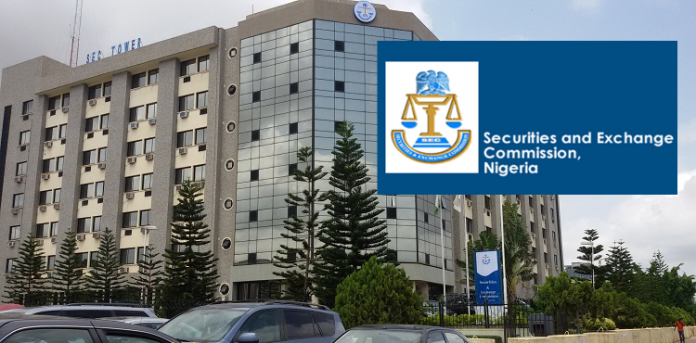By Omoniyi Salaudeen and Daniel Kanu
By popular demand or imaginary concoction of the lawmakers in the National Assembly, 31 more states are now in the offing. The Deputy Speaker of the House of Representatives, Hon. Benjamin Kalu, read out the list of the new requests during the last plenary to the chagrin of most Nigerians.
 Okorie
Okorie
If the bill proposing the state creation scales the hurdles of legislative debate and other constitutional requirements, the federating units in Nigeria will increase to 67, including the Federal Capital Territory, Abuja.
The proposal, which is now a talking point in the polity, has been greeted with uproarious reactions from across various stakeholders. Unlike in the previous botched attempts, the raging debate is not about the desirability or otherwise of the requests, but the seeming lack of restraint exhibited by the lawmakers in proposing the new states.
 Ozekhome
OzekhomeBased on the experience of the two successive dispensations, stakeholders had expected the lawmakers to be more circumspect in handling the deluge of agitations that have always followed any proposal for state creation.
However, unmindful of the factors that led to the failure of the previous attempts, the House Committee on Constitution amendment went the extra mile, coming up with a proposal for 31 additional states to the existing 36.
 Bode george
Bode george
Whatever reasons behind the requests, the proposal underscores two major fundamental issues: over politicization and the poor understanding of the economic and financial implications of the creation of an unwieldy number of states.
This could be either that the legislators deliberately feigned ignorance of the stringent conditions, emotions and sentiments attached to it or the constituents they represent desperately wanted their share of the nation’s cake which nobody is ready to bake anyway.
To begin with, what are these new states bringing to the table at the centre to be able to build a national cake that would be big enough to go round? What is the financial viability of these so-called new states? These factors are critical to any decision-making process about state creation because creating a state without consideration to these issues will only amount to building something on nothing.
Currently, only six states in Nigeria are economically and financially viable.
According to recent National Bureau of Statistics (NBS) reports, the states are Lagos, Ogun, Rivers, Kaduna, Kwara, Oyo, and Edo. They consistently rank high in terms of Internally Generated Revenue (IGR), indicating a strong local economy. Lagos is considered the most economically viable state due to its high IGR and large commercial activity, while Ogun which is often mentioned as the top investment destination after Lagos, benefits from its proximity to the nation’s commercial nerve centre. Rivers, Kaduna, Oyo, Edo maintain sustained significant economic activity and high IGR.
Those on the lower wrung of the ladder are mere appendages of the Federal Government, surviving largely on monthly handouts.
On account of the low probability of financial and economic self-sufficiency, a deluge of criticisms have continued to trail the proposal for the creation of additional states, which will ultimately worsen the current dependency syndrome.
Prominent stakeholders, who spoke with Sunday Sun, roundly blamed the lawmakers for contemplating such, in the first instance, leaving the urgent issues of national importance unattended to.
A notable leader of thought in the Southeast, Chief Chekwas Okorie, piqued by the uninspiring scenario that played out in the House of Representatives at the last plenary, simply dismissed the exercise as a waste of valuable time and energy.
He said: “Quite frankly, the issue of state creation is not what Nigeria needs at this time. It will be a waste of valuable time and energy to go through the hurdles of state creation. First of all, the Constitution has to be amended before anybody can even contemplate state creation.
“It was the past military regimes; from Gowon to Abacha, that used military fiat to create states. No civilian administration has been able to meet the stringent requirements deliberately put in the Constitution to make the creation of states be like the proverbial camel passing through the eye of the needle.
“That is the number hurdle that those who are thinking of state creation have not figured out. The lawmakers in the National Assembly should first of all concentrate on creating the framework that will make state creation possible.
“Secondly, the 36 states we have including Abuja are increasingly becoming difficult to operate. Those who created them did it in such a way that it gives certain section of the country certain advantage. Northwest alone, for instance, has seven states. If you break it down, you cannot see the justification for the creation of seven states in that part of the country. Except Kano and Kaduna, all the others are not viable.
“While all other sections of the country have six states each, the Southeast has five states. And the cry to balance this iniquity has fallen on deaf ears.
“Now, some people are talking about adding 31 more states to 36. They have not spent one second to convince anybody about economic viability of the new states they are proposing. To me, nothing can be more nonsensical than that proposal. It is a useless proposal. I don’t expect it to get to the second reading.
“That speaks to the kind of legislators we have in the National Assembly. It simply means that these people are idle. It means they are not thinking of what will help to make the country better. For instance, I am yet to see new things they are bringing in to make the electoral process more transparent, more credible and more acceptable.”
Likewise, renowned constitutional lawyer and Senior Advocate of Nigeria (SAN), Prof Mike Ozekhome, didn’t spare the lawmakers with harsh words for their selfishness, describing them as Alawada, a Yoruba word for a jester. According to him, “only the Southeast region needs one additional state to correct the inherent injustices in the country’s “warped federalist system.”
He, therefore, dismissed the exercise as a needless distraction from the existential crises facing the country.
In a statement made available to Sunday Sun, Ozekhome said: “I am surprised and greatly disturbed to hear that members of the NASS are proposing 31 additional states to the present already behemoth, over-bloated and unwieldy 36-state structure that Nigeria operates.
“I see this needless venture in the midst of more critical national issues as nothing, but jesters playing out Baba Sallah’s Alawada Kerikeri histrionics and buffoonery.
“How can they be talking about creating additional 31 states when over 2/3 of the present states are unviable entities existing on life support and merely dependent on the centre for monthly oxygenation under Section 162 of the 1999 Constitution?
“How can we be talking of going through the stringent provisions of Section 8 of the 1999 Constitution for a meaningless exercise that adds no value to a nation gasping for existential breadth?
“How can they be talking about creating new states when hunger, starvation, squalor and melancholy envelope inhabitants of the present minion states that literally beg for crumbs from the Abuja master’s table?
“All that Nigeria needs now are only two things to correct the inherent injustices in our warped federalist system: one is additional state in the Southeast to equal others; and a brand new Constitution that is legitimate, people-driven.”
While dismissing the proposal as dead on arrival, he cautioned the National Assembly members to immediately drop the “provocative, funny and phoney butterflies-chasing and stop insulting our collective intelligence.”
Former Deputy National Chairman of the Peoples Democratic Party (PDP), Chief Olabode George, also faulted the proposal for the creation of 31 additional states, describing it as unnecessary.
The elder statesman maintained that creation of additional states would not solve the country’s challenges or promote its development.
His words: “Forget about more states. We want to create more states and then everybody will be rushing to Abuja. This is not sustainable.
“Let us look at our federal structure first, the same federal system we run with America. Why are we not running it as they run their own?
“Go to New York City, the Mayor of New York controls the airport, the John Kennedy Airport, he controls the ports, the seaports.
“Go to New Orleans, the mayor they control the ports. The same thing in Texas, all oil companies are not controlled by the president. That is federalism. Those people don’t run to Washington every hour to meet the president.
“In America, they have state police and even county police .Why can’t we have such here? Creation of more states is not sustainable. What we need now is to address the problems in our federal structure”.
George called for the adoption of the recommendations of the 2014 Confab to achieve true federalism and address the country’s numerous challenges.
Afenifere, a Yoruba socio-cultural group, while also rejecting the proposal, said that it contradicted its demand for a true federalism.
Abagun Kole Omololu, Afenifere’s national organising secretary, told Sunday Sun that creating more states without a viable economic foundation would only compound the financial burden on the nation.
The Arewa Consultative Forum (ACF), expressing its opposition to the proposal, cited the country’s complexity as a potential problem for creating more states.
Prof Tukur Muhammad-Baba, ACF’s national publicity secretary, said that the group questioned the economic viability of the existing 36 states and highlighted the administrative burdens and overhead costs associated with governance and civil service.
The National President of the Middle Belt Forum, “Bitrus Pogu, emphasized the need for a more inclusive and representative system of government.
In the same vein, the Pan-Niger Delta Forum maintained that the creation of more states could be meaningful only if all geo-political zones have equal states, as agreed in the last constitutional conference.
Christopher Ominimini, the spokesman for PANDEF, emphasized the importance of self-sustainability and equal representation across zones.
The apex Igbo socio-cultural organisation, Ohanaeze Ndigbo Worldwide, declared that the Southeast should be allocated more states to address ‘’the wrongs that had been done to the region on state creation over the years.’’
Ohanaeze National Publicity Secretary, Dr Ezechi Chukwu, said: “It is unfortunate that such a bill is also aimed at suppressing the Southeast as usual. It is completely unacceptable that Southeast should be appropriated only five states.
“Southeast, all these while, is the only zone in the Federal Republic of Nigeria that has the least number of states irrespective of our population and our contributions both economically and infrastructural development of the nation.
“So, giving Southeast such a small number of five states in this bill when others that already have advantages orchestrated by successive governments before now is quite unacceptable and unfortunately, it is above all antithetical to the commonwealth of the South Easterners and the so-called equity we are preaching in the country.”
He added: “Southeast deserves more states more than any other zone in the country because Southeast is the only zone that has been short-changed over the years by successive governments. So, if justice and equity should prevail Southeast must be given the highest number of states.
“So, if the Federal Government fails to correct the wrongs that had been done to the Southeast over the years, this is the time to at least give this equation some terms of balance by appropriating more number states to the Southeast to make up with the other geopolitical zones.”
By and large, the rage of anger trailing the proposal may just be a tip of the iceberg. By the time the proponents introduce the bill to the House, the ensuing debate will surely ignite more reactions. And unless the lawmakers retrace their steps and listen to the words of wisdom, this may be another missed opportunity to reshape the country’s constitution.




 1 week ago
51
1 week ago
51







 English (US) ·
English (US) ·